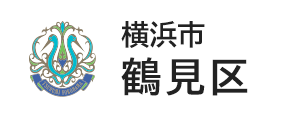The text is from here.
Historic sites, shrines and temples 2
Last updated on April 3, 2025.

![]()
It is said to have been founded in 1542 (1542). It is a registered cultural property of Yokohama City, with the successive burial ground of the Hagimoto and Hisashi Honke who learned about this area during the Edo period. The 300-year-old large ginkgo is known for the legend of the "nanny ginkgo" where the mother of Hisashi Motokatsu prayed for milk.

![]()
Address / Komaoka 3-5
Transportation / From JR Tsurumi Station West Exit, get off at Kawasaki Tsurumi Rinko Bus Tsuru 02 and Tsuru 04 line "Komaoka Fudosonmae" and walk 4 minutes.

![]()
A private house built on the site of Odagiri, who has been a master since the Keicho era. The mansion consists of thatched roof's main building, main gate (nagayamon), grain storehouse, Bunko storehouse, and silkworm hut, and Designated Cultural Property in Yokohama. Standing in this area, you can clearly see the state of the Australian farmhouse during the Edo period.
The building dates from the late Edo period to the middle of the Meiji period. On the second floor of the main building built in 1896 (1896), you can see a 1/1000 model of Shishigaya Village in the early Showa era, as well as materials related to rural life and ancient document in the building. Every season, there are annual events such as seven herbs porridge, Hinamatsuri, Dango Festival, and fifteen nights in nature. There is also the only rice field in the city.

![]()
Address/3-10-2 Shishigaya
Time / 9:30-16:30
Closed days / 3rd Monday (if it is a holiday, the next day) ・ New Year holidays
Admission free (however, there is a request for some operation cooperation fees)
Transportation / From JR Tsurumi Station West Exit, get off at Kawasaki Tsurumi Rinko Bus Tsuru 03 Line "Shinmei-sha-mae" and walk 8 minutes, get off at Yokohama Municipal Bus 104 Line "Omote Tando" and walk 5 minutes
Phone: 045-574-1987
HP/https://qq2h4dy9n.wixsite.com/yokomizoyashiki (outside site)

![]()
It is located near Kami-Shinmei Shrine in the forest of Shishigaya citizens. Erected in 1718 (1718). It has been believed that turning a small wooden car called a second-generation car on the pillar at the entrance of the temple will save you from the suffering of six roads.
It became Designated Cultural Property in Yokohama in 1996.

![]()
Address/Shishigaya 3-chome
Transportation / From JR Tsurumi Station West Exit, get off at Kawasaki Tsurumi Rinko Bus Tsuru 03 Line "Shinmei-sha-mae" and walk 10 minutes.
Inquiries to this page
Tsurumi Ward General Affairs Department Ward Administration Promotion Division
Phone: 045-510-1680
Phone: 045-510-1680
Fax: 045-510-1891
E-Mail address [email protected]
Page ID: 166-660-069













